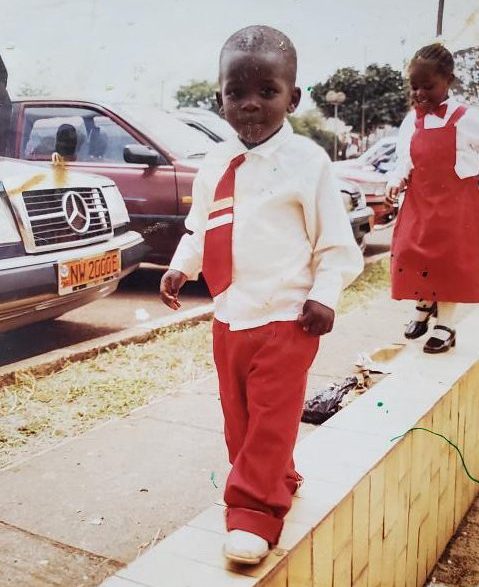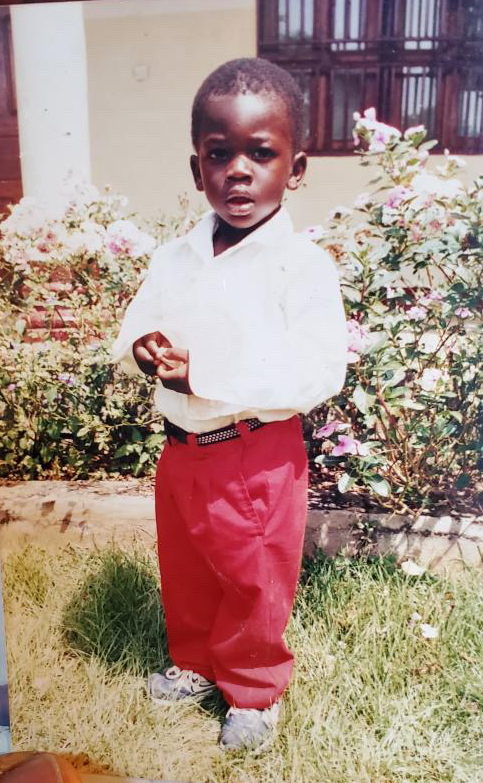
The boarding schools of Bamenda, Cameroon — with their high fences and security guards — had always been regarded as relatively safe from the conflicts of Cameroon’s Ambazonia War. However, on Nov. 4, 2018, that illusion shattered with the kidnapping of 81 students and teachers from Bamenda’s Presbyterian Secondary School. In Cameroon’s worsening civil war, even classrooms had become battlegrounds. One student from among the kidnapped, 17-year-old Darius Kogah, seized the chance to escape the conflict, immigrating to the U.S. with his family to pursue a higher education. Eastside interviewed Kogah, who shared his experiences in the hopes of bringing awareness to the conflicts in his home country. Here is his story.
At 9 years old, Kogah’s parents sent him to Bamenda’s Presbyterian Secondary School, which he believed to be safe, but nevertheless prison-like. Every morning, they would bathe in cold water because hot water was unavailable, and among the students, there was an unofficial hierarchy that gave students with higher forms — meaning classes or grades — more control over those with lower forms.
“The living conditions were comparable to a prison in America because the food was meager, the walls [were] high, and it was very indistinguishable from a cell,” Kogah said.
Outside of the confines of his school though, Kogah knew that there were much larger issues as a result of the ongoing Anglophone Crisis, otherwise known as the Ambazonia War, between the French Cameroonian government and the Ambazonia Defense Forces that consisted largely of the country’s Anglophone minority. Despite Kogah’s belief that the school would protect him from the violence beyond its walls, the day ultimately came on Nov. 4, 2018, when members of the Ambazonia Defense Forces, often referred to as the Amba boys, broke into his boarding school and began rounding up students and teachers.
“We were in school and the classes were going as usual until we started hearing gunshots and commands from the Ambazonia boys,” Kogah said, “and [at] this point, we were pulled out of the classrooms and taken to… the soccer field.”
Kogah was among the 81 students and teachers kidnapped and used to demand that the Cameroonian government close the school as a form of protest against the government’s imposition of French teachers and language in Anglophone schools. Upon transporting the students to an unknown location, the Amba boys released a video on social media in which they forced several of the kidnapped children to say their names and the names of their parents to prove the severity of the situation to the Cameroonian government. Although the Cameroonian authorities dispatched search parties to find the students, they were unsuccessful and the government made little effort otherwise to resolve the situation or negotiate with the kidnappers.
“[The Amba boys] would use force like maybe killing a hostage to show the seriousness of the situation,” Kogah said when asked about his thoughts during the kidnapping. “I thought it was my end.”
Eventually, through a series of negotiations with the Presbyterian Church of Cameroon, the students were peacefully released on Nov. 7, 2018 in an abandoned church building roughly 15 miles from Bamenda. However, the Amba boys did achieve their goal, as the school was closed down shortly after the students’ release. Even though the Cameroonian authorities had been unable to locate the students or otherwise resolve the situation, they took credit for the students’ release.
“When I heard that I was free… that was a life-changing moment,” Kogah said, “and it really changed the kind of person I am today to be someone who values life and is empathetic about situations people could be facing.”
Following his release, Kogah and his family faced the difficult decision of whether to remain in Cameroon or immigrate to the U.S. for their safety. Kogah’s father was a principal of a local school, which made life even more dangerous for them, as anyone with such influence over schools immediately became a target of the Amba boys. Despite the heightening war, Kogah’s parents valued academics more than anything, which ultimately led them to immigrate to the U.S. so that their children could pursue a higher education without the risks associated with it in Cameroon. However, life after immigrating to the U.S. wasn’t exactly easy for Kogah either.
“Life was tough coming from a place where… everyone looked like me, everyone spoke like me, and we ate the same foods,” Kogah said. “It was hard to adapt particularly in middle school because my accent was always stronger than everyone else’s, my skin was always darker, and I just didn’t act the way people acted.”
In spite of his initial struggles to adjust to his new school and environment, Kogah now excels academically as a senior at the Academy for College and Career Exploration in Baltimore, avidly participating in his school’s wrestling and robotics teams along with an array of other extracurriculars.
“I’m very grateful for the opportunity to pursue my further education in the United States,” Kogah said. “The [college] process has been fun because I’ve been able to look at my story which I never knew I had.”
While Kogah was fortunate enough to have the opportunity to move to the U.S., the sad reality is that most Cameroonians suffering from the violence of the Anglophone Crisis don’t share the same privilege. How many children must be stolen from their desks before people recognize the need for change? How many hostages must die? How many schools will be burned? There must be greater diplomatic efforts within Cameroon, and by other nations across the globe, to cease the violence and division between French Cameroonians and the Anglophones. Otherwise, the world risks allowing another generation of Cameroonian children to grow up — not fearing the monsters in their closets — but the machetes and guns of their brethren.
This story was pulled from Eastside’s package on the crisis in Africa. To read more about the context of the Anglophone crisis and see more quotes from Kogah, click here.



